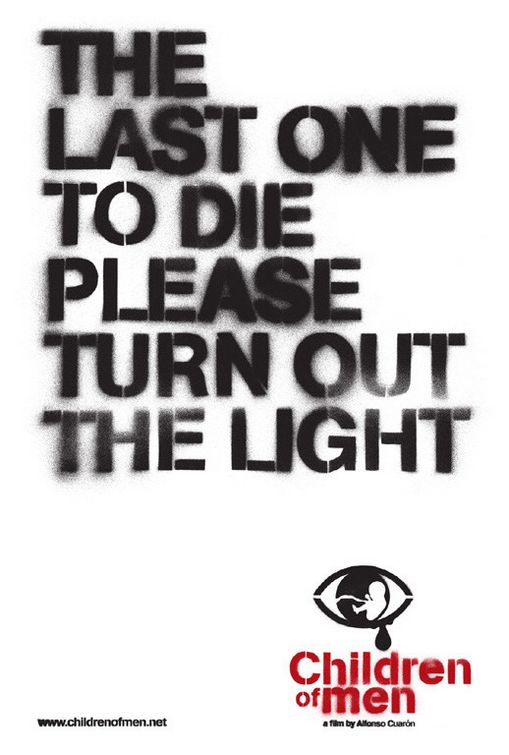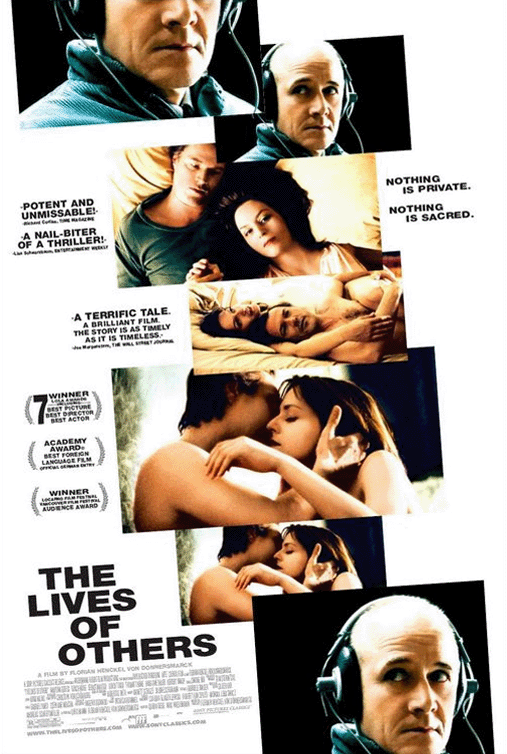40.) BEFORE SUNSET (dir. Richard Linklater)

the best sequel of the decade was also among the most unexpected. the original - despite being graced with some of the worst DVD cover art in the history of DVD cover art - is a charming, smart little film about one of those romantic nights that miraculously manages to avoid feeling false or forced. the sequel is just one of those things that came together at just the right time in just the right way… co-written over e-mails between linklater and his two stars and set in a sun-dappled Paris, Before Sunset plays its hand perfectly. the stellar decision to tell this story of unexpectedly reunited lovers in real-time provides a framework within which every element just slides neatly into place. the 90 minute conversation - canvassing the interval between a bookstore and a bedroom - is afforded a tremendous urgency by the format, each moment rendered a revelation. but the true success of the film comes down to its characters… julie delpy and ethan hawke are eminently believable, and make it an easy pleasure to sift through the distance between them. and that ending… a perfect movie.
The rest after the jump!
39.) BOWLING FOR COLUMBINE (dir. Michael Moore)

my affinity for this film is in no small way bolstered by my immense distaste for the evils wrought by a 2nd Amendment in dire need of retooling, but nevertheless imagine this will forever remain michael moore’s finest film because it’s easily the most forceful and direct work of his career. his anger and incredulity is palpable, his subjects remarkable case studies. whereas moore’s sense of humor has resulted in some distracting detours in his other films, here his every attempt at humor is not only morbidly hilarious, but also chilling. and his gimmicks… there’s no discordant trip to cuba, here. methinks that Kmart began phasing out the sale of handgun ammunition from its stores in the wake of moore’s visit to their headquarters (with some ailing columbine victims in tow) speaks for itself. Bowling for Columbine isn’t maddening simply because of Moore’s indignant provocations, but because it’s complete, faultlessly constructed essay filmmaking at its finest
38.) THREE TIMES (dir. Hou Hsiao-Hsien)

NYT critic A.O. Scott said of HHH’s epic triptych of love stories, “This is why cinema exists.” take that for what you will, but this Taiwanese masterpiece in which the same two actors (Shu Qi has never nor will never be better than she is here) portray lovers in 1966, 1911, and finally 2005, is as beautiful and breathtaking as any film has ever been. opening in the florid haze of a pool hall to the smooth sounds of The Platters’ “Smoke Gets in Your Eyes,” and winding down in the cool distortion of modern electronica, each of Three Times’ characteristically laconic stories is a pleasure in and of itself, but in short succession they cohere into one stirring look at how love is implicitly defined by its circumstances. more contemplative than his agreeable and similarly beautiful (if slight) Millennium Mambo, Three Times is among the saddest films in which I enjoy being lost.
37.) LITTLE CHILDREN (dir. Todd Field)

Todd Field adapts novels into films that feel as if they’re adapted from novels, yet he imbues them with a cinematic flair and feeling that affords his finely selected stories with the best of both mediums. GABORIK!!!! …sorry, Rangers game is on. this fine adaptation of tom perrotta’s novel of the same name, makes definitively cinematic spaces from washing machines, attics, and the window dressings of domestic suburbia, relying on a superbly dry voiceover and pitch-perfect casting to nail just the right tone. jackie earl haley’s utterly remarkable supporting turn as a local pedophile (the flashing kind, not the touching kind) recently released from a prison stint, helps steer the narrative of quiet dissatisfaction and infidelity into a lingering tale of people desperately trying to reconcile their natures with the world at large. a coda which could be argued to be slyly cynical wraps things up with a sting.
36.) CHILDREN OF MEN (dir. Alfonso Cuaron)

the most unrelentingly dreary ode to hope on the better side of Precious, alfonso cuaron’s technically masterful dystopian opus (dystopus?) is so precise and circumspectly composed… it’s really just a marvel to watch. the brilliantly framed opening shot - with a crowd at a coffee shop all staring upwards at the camera which substitutes for a television, as desperate for anything as baby hens - which is followed by a coffee-killing explosion, well… it’s an honest harbinger of what’s to come. women inexplicably can no longer get pregnant, and what appears to be humanity’s final generation isn’t doing so well with the news. cuaron’s ensures that the grays and greens which dominate his palette leave room for just enough light, and the crazed urgency of emmanuel lubezki’s long takes (one action sequence captures over 10 straight minutes in a single, dexterous shot) makes visceral the winnowing thread by which civilization dangles.
35.) THE LIVES OF OTHERS (dir. Florian Henckel von Donnersmarck)

a masterfully manipulative morality play from a first-time feature filmmaker, The Lives of Others is neat and easy but it’s twisting narrative about an East German playwright and the Stasi agent who monitors him earns its massive payoff simple touches and well-rounded characters. characters who certainly feel like pawns in a pre-determined game of sorts, but the vein of legitimacy into which the film taps in spite of how frequently it shows its hand is not to be dismissed. the late, great ulrich muhe leaves us with some of his finest work, and the subtle yet rivetingly rich emotional textures with which his Stasi agent obscures the narrative’s otherwise simple lines, resulting in an unpredictability profoundly ironic in such a restrictive culture. i’d be happier without that last freeze frame… but all my gripes be damned, this is a film and a story that hits all the right notes and hits tehm hard.
34.) SILENT LIGHT (dir. Carlos Reygadas)

a quizzical film, and unusually non-confrontational for the previously brusque Reygadas, Silent Light is gorgeous and austere, ostensibly inviting the viewer into a Mexican Mennonite community (exclusively populated by Germans), clearly establish a social order, and then resolving itself with a mystically impenetrable turn. the time-lapse sunrise with which the film opens is worth the price of admission alone, and the solemnity with which Reygadas introduces us to the Mennonite family around which the film revolves is gripping in its slow heft. the man of the family loves a woman who is not his wife… and in such a community, such knowledge is not kept hidden. casting only authentic Mennonites (cause otherwise I could totally spot the difference), Reygadas paves the crossroads of his protagonist’s life with a slow, steady rhythm punctuated with a spiritual levity that adds an aura of the unreal to the story’s very basic circumstances. to fully discuss the film is to reveal the sharp turn of the film’s closing minutes, so I’ll simply say that I feel this film will grow in public estimation, and over time will only become more indispensable for me.
33.) MAN ON WIRE (dir. James Marsh)

ugh, a totally genius film, and not just because phillippe petit is such an extraordinary character… the kind of guy that a certain Teutonic filmmaker of whom I happen to be an admirer shares a key affinity with the tightrope worker and his vision… no, methinks this film is oh so great largely because of the ways in which traditional documentary form is augmented with stylized dramatizations of petit’s break-in to the world trade center. using whatever tools cinema afforded him, Marsh unambiguously distorts and embiggens (which is a perfectly cromulent word) Petit’s account in a heightened (pun always intended) fashion befitting its subject… Man on Wire isn’t simply the story of petit’s feat, but the story of the story of petit’s feat… a key distinction which perfectly captures the man, and makes all the difference. and that moment wherein petit draws the line between the two towers… is the best. of all moments.
32.) AMELIE (dir. Jean-Pierre Jeunet)

cinema’s most charming pathological passive-agressive… audrey tautou’s star-making role puts her in the shoes of a woman who is tickled by people (er… not literally), but forbids herself from direct interaction with the lives she redirects. Jeunet’s films are overtly a string of tiny, fanciful narratives that are somehow collected by either the character and / or the viewer… the simplest of acts must involve a contraption, and is heightened to the delightful (some might say cloying) realm of opera… so enraptured by the little things, it’s easy to understand why jeunet’s epic A Very Long Engagement was a bit of a mess. but not to stray… Amelie is a delight in part because the narratives jeunet concocts for his legion of minor characters are immensely rewarding in and of themselves, while also reinforcing Amelie’s larger quest. the main character is amiably deranged, but never so much that it becomes discordant in the distinctly cinematic universe in which her eccentricities are engaged. and though she lives in Paris - perhaps cinema’s most common city - her Paris is unlike any we’ve seen before… jeunet, as usual, devises a universe of his own here, but Amelie is his most fun sovereign. and her journey from puppeteer to being in a relationship of her own is as satisfying as its innumerable parts. and it’s right about now that i think the ambien is kicking innnn…
31.) STILL WALKING / 35 SHOTS OF RUM (dir. Hirokazu Kore-eda / Claire Denis)


the last two films i’ll group together, but perhaps the most appropriate… two titans of international cinema pay homage to Ozu in their own way, and the results are sublime. i mean, it says that in french right there on the poster. i’ve long maintained that hirokazu kore-eda’s films are indebted to ozu in their stoicism and quiet wist, but Still Walking renders comparisons completely unavoidable. the story of a somewhat estranged family coming together for their annual assembly in the suburbs of Yokohama to mourn a lost loved one, Still Walking is invitingly intimate and unhurried, yet still devastating in how it exposes inter-generational fractures. brilliant performances abound, and the scene in which the family invites a visitor into their home is among the most painfully textured of recent cinema. the detached coda has proven somewhat controversial to those with whom i’ve discussed it, but by that point i think it’s simply jarring to be reminded that these are character from whom we have to part. a moving masterwork, and yet still not kore-eda’s finest film.
as for claire denis… her lilting film quotes Ozu in less obvious ways, perhaps, but beautifully intuits the spirit of the Japanese master’s films in the head-on ways in which the members of this film’s core family are defined by their relationships between one another… as denis regular Alex Descas and Nicole Dogue trundle around a Parisian apartment in the film’s first scene, it’s supremely telling that denis provides so few clues as to the nature of their relationship. it’s our only opportunity to gaze upon them as free radicals… the two are soon revealed to be father and daughter, living next to an eligible bachelor of an artist and one of the father’s old flames in the decidedly low-key apartment complex in which they’ve all been living for years upon years… the joy of this deeply warming film is in watching the characters discover the loving depths of the dynamics they share with one another… the tenants realizing they’re all family, and the actual relatives learning the value of what family they have left in a paris in which the isolated do not survive. Descas’ character works as a conductor on metro… and the frequent, train-mounted shots along the tracks succinctly suggest the efficiency of a world crossed by rigid lines… until there’s blood on the tracks. denis used to endlessly re-watch ozu’s films with her mother, and is for whatever reason comfortable with exploring the timbre of his narratives in spaces largely omitted from his films… such as a busted down cab, or a closing cafe in which the characters escape from the rain. the almost wordless scene that transpires inside… dominated by the smooth sounds of The Commodores’ “Nightshift,” adds an element of physicality to the dynamic free-for-all that lovingly advances Ozu’s craft to an era it couldn’t fathom. that made no sense… cause i am now really on the drugs. so should probably stop computer is dancing. but the nightshift scene sooooo great. two absolutely essential films.
tomorrow is where this shit gets REEEEEAL. we got spielberg rubbing up against modern installation artists… 3 hour docs, bounce from Hong Kong to Iran… it’ll be a party. i’ll bring the words, you bring the moonshine.






0 comments:
Post a Comment